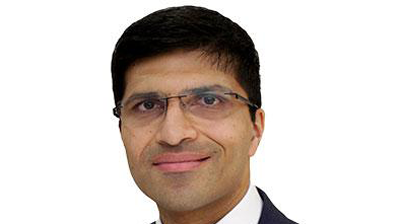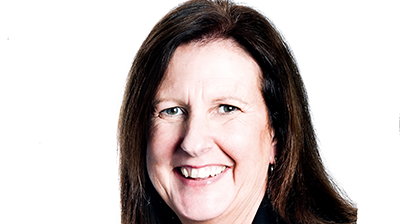
Following the news that the FCA is considering adding a sixth question on diversity and inclusion (D&I) to its five conduct questions (5CQs), legal professionals at Morgan, Lewis & Bockius LLP have concluded that this marks a shift in the FCA’s level of focus on D&I.
The topic of gender and ethnic diversity in the financial services sector feeds into the FCA’s recent “In confidence, with confidence” campaign, which encourages whistleblowing and aligns with the regulator’s renewed focus on purposeful cultures that will create environments in which diversity can flourish.
The following article is attributed to Louise Skinner, Chris Warren-Smith, Lee Harding, Melanie Ryan, Steven Lightstone and Thomas A.J. Twitchett from Morgan, Lewis & Bockius LLP.
Mark Steward (pictured above), the executive director of enforcement and market oversight for the FCA, delivered a speech at the New York University School of Law on 31 March on how to embed compliance into the roots of an organisation, including the framework and impact of the UK Senior Managers and Certification Regime (SMCR). As part of his speech, Mr Steward spoke about the 5CQs, and the potential introduction of a sixth question on diversity and inclusion.
D&I interrogation The 5CQs form part of the FCA’s Conduct Questions Programme. First launched in 2015, the programme is designed to help firms improve their conduct risk management and, ultimately, drive cultural change.
The 5CQs are addressed to firms and require self-reflective answers to the following:
- What proactive steps do you take as a firm to identify the conduct risks inherent within your business?
- How do you encourage the individuals who work in front, middle, back office, control, and support functions to feel and be responsible for managing the conduct of their business?
- What support (broadly defined) does the firm put in place to enable those who work for it to improve the conduct of their business or function?
- How do the board and executive committee (or appropriate senior management) gain oversight of the conduct of business within their organisation and, equally importantly, how does the board or executive committee consider the conduct implications of the strategic decision?
- Has the firm assessed whether there are any other activities that it undertakes that could undermine strategies put in place to improve conduct?
In his speech, Steward explained that the 5CQs had gone on a “journey” since their introduction. Originally, assessment of the 5CQs focused on the role of senior management to deliver the “tone from the top.” It then focused on the “tone from above”: line managers setting examples for their direct reports. The assessment is now focusing on the “tone from within”: that individuals should know not just how their chief executive officer or line manager would respond to a situation, but how they too, personally, would respond and why.
Steward also noted that the FCA was “considering a sixth question in future work which will interrogate firms on diversity and inclusion, another telling indicator of culture.” The FCA considers that diversity plays a role in both the management of risk and a decrease in the number of misconduct fines.
Although the regulator does not currently have formal powers to enforce D&I, the implementation of a sixth conduct question to the 5CQs would ensure that D&I is given further prominence within the FCA’s regulatory regime.

A similar sentiment was expressed by Nikhil Rathi (pictured above), chief executive officer at the FCA, in a speech at the launch of the HM Treasury Women in Finance Charter Annual Review. Rathi stated that the FCA will not be afraid to draw on its wider supervisory tools to ensure that diversity is a core aspect of firms’ senior management culture.
He also noted the symbiotic relationship between diversity and whistleblowing, asking firms: “Is your management team diverse enough to provide adequate challenge and do you create the right environment in which people of all backgrounds can speak up?”
The importance of a ‘speak-up culture’
Whistleblowing is central to identifying breaches and is emblematic of an individual making the choice to set the “tone from within” and not turning a blind eye to poor conduct.
The FCA’s recent campaign, titled “In confidence, with confidence,” encourages individuals to report wrongdoing in the areas that the FCA regulates. The campaign highlights the importance of regulated firms having robust whistleblowing policies and procedures in place and reminds individuals of the confidentiality processes that protect whistleblowers against the fear of retaliation from senior employees, or even dismissal.
As part of the FCA’s campaign:
- The FCA has updated its website to provide refreshed information for whistleblowers, including how the FCA aims to protect whistleblowers’ identities, what the FCA will do with information that it receives, and how whistleblowers can liaise with a dedicated FCA case manager.
- The FCA’s whistleblowing team is developing a confidential webform to allow whistleblowers to make disclosures, widening the means by which disclosures can be made.
- The FCA has reminded firms that they must have in place effective whistleblowing policies and procedures to allow employees to raise concerns safely.
These recent speeches together show that the FCA is continuing to explore ways in which to promote D&I within its regulatory framework, in an effort to push firms further to address longstanding equality and diversitys concerns in financial services, and particularly in senior roles. Such enhanced diversity will also feed into the FCA’s priority of strengthening whistleblowing processes and helping to ensure that whatever someone’s background, they will feel comfortable speaking up.






